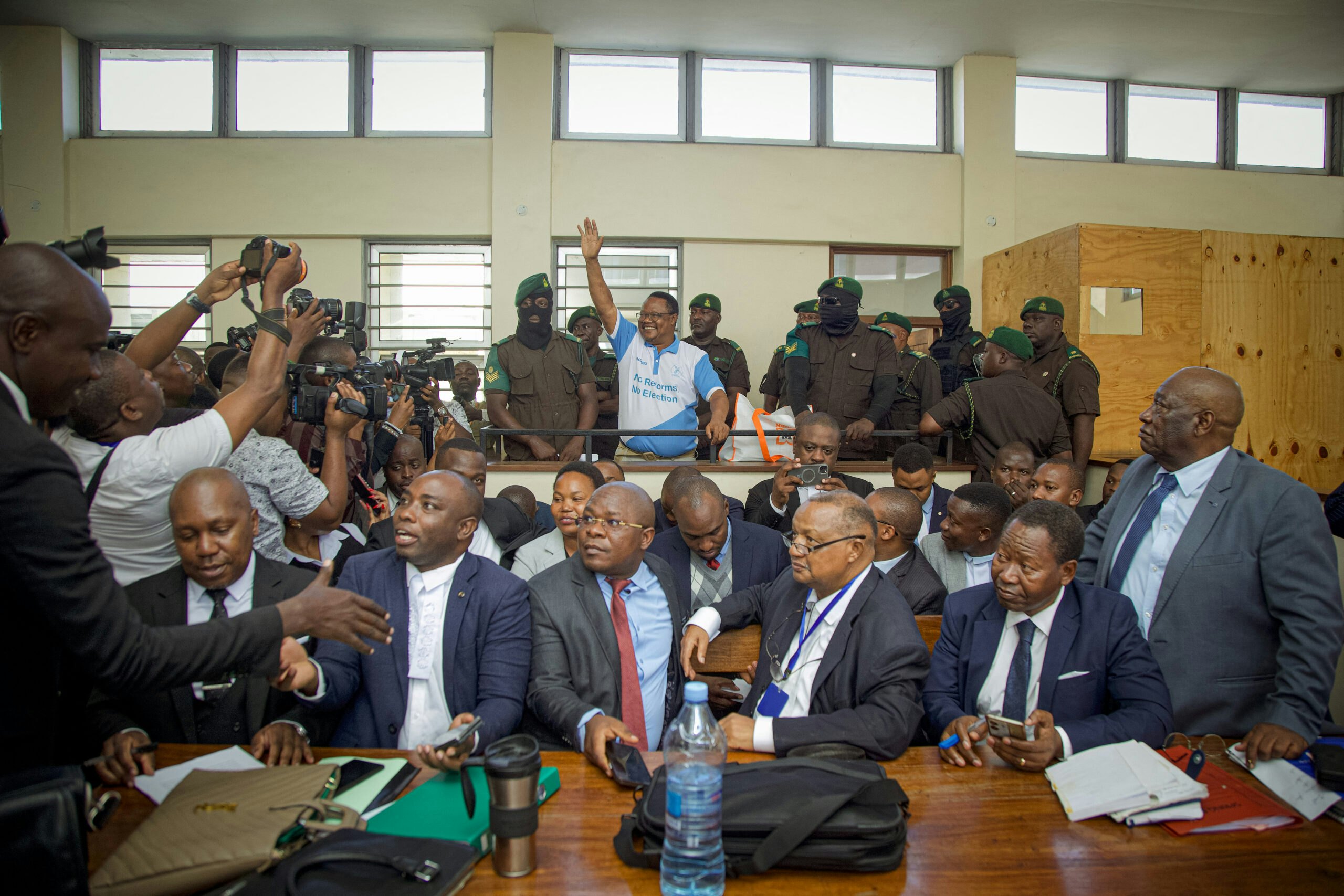Americans don’t like to think that we can be easily manipulated, but foreign adversaries have grown adept at it through disinformation campaigns.
The prevalence and endurance of Russian (and other authoritarian) propaganda in the United States is dangerous. And no one is immune from its influence; these lies can even be amplified by members of Congress. No one in the United States is immune from the prevalence and endurance of Russian (and other authoritarian) propaganda. Even members of Congress have amplified their lies.
Accepting disinformation as truth represents yet another threat to already declining trust in our national leadership. Part of the solution is for Americans to strengthen their personal resilience against these tactics – which in turn would make propaganda less effective and buttress our democracy.
It’s laudable that Republican Representatives Michael McCaul of Texas, and Mike Turner of Ohio, have called out fellow members of Congress for parroting Russian disinformation on Ukraine. As Turner warned, “Now, to the extent that this propaganda takes hold, it makes it more difficult for us to really see this as an authoritarian versus democracy battle, which is what it is.”
A recent hearing of the House Oversight Committee on “Defending America from the Chinese Communist Party’s Political Warfare” provides a case in point.
During one exchange, Republican Representative Marjorie Taylor Greene of Georgia chastised Yale University historian Timothy Snyder, who had provided testimony to the committee, for spreading “misinformation.” She took issue with his opening statement, in which he described the claim of “neo-Nazis” within the Ukrainian military as a “disinformation trope.”
Russian President Vladimir Putin, of course, has stated that “de-Nazification” is a major objective of his Ukrainian invasion.
Representative Greene offered several articles referencing Ukraine’s Azov Battalion – a former militia unit with far-right roots, now integrated into Ukraine’s military – as evidence that Snyder’s remarks were untrue.
Snyder’s response is worth paying attention to and learning from. In doing so, we make ourselves more resilient to disinformation.
He acknowledged that there are “bad people” in every country but disputed the idea that Nazism has a strong or even disproportionate influence over Ukraine, calling it a “small phenomenon” by any comparative standard.
A little further digging clarifies that claims to the contrary don’t stand up to common sense scrutiny.
The website Factcheck.org, a project of the University of Pennsylvania’s Annenberg Public Policy Center, provides analysis supporting Snyder’s assessment on the fecklessness of Ukraine’s far-right movement, such as it is. They report that in the past two parliamentary elections, 2014 and 2019, far-right parties won 6% and 2% of the vote respectively.
Also noteworthy, Ukrainian President Volodymyr Zelensky is Jewish with family who were victims of the Holocaust, and Ukrainian Defense Minister Rustem Umerov is Muslim. It seems unlikely at best that a country controlled by Nazis would allow these men to reach and maintain high-level leadership positions.
The proposition that Nazis wield significant influence over Ukraine becomes flimsier when confronted with their political weakness in the country.
Snyder further explained that if there is sincere concern over neo-Nazi elements in the Ukrainian conflict, the spotlight should turn to Vladimir Putin’s Russia. He pointed to Moscow’s Rusich unit – a brutal neo-Nazi paramilitary group deployed in Ukraine – as an example. Furthermore, he described the character of the Russian government as fascist, pointing to a war that has seen the “mass deportation of [Ukrainian] children by the tens of thousands, the open intention of destroying a state, as well as mass torture.”
This assessment is shared by Freedom House’s comprehensive analysis of Russian political rights and civil liberties. Its studies reveal a dearth of independent media, nearly nonexistent political competition, and a battered civil society ecosystem.
It’s clear that Putin firmly controls Russian society with little regard for the welfare of his people. As the Soviet dissident Andrei Sakharov observed, “A country that does not respect the rights of its own people will not respect the rights of its neighbors.”
The Russian government’s domestic record should rightfully attract scrutiny and skepticism of its dealings with neighboring countries.
Finally, Moscow and Beijing practice political warfare by manipulating American citizens with disinformation, “to convince us that our system is no better than theirs, there’s no point in voting,” Snyder said in response to a question from Democratic Representative Mark Frost of Florida.
Foreign adversaries use disinformation campaigns as weapons that undermine personal confidence in American democracy and global engagement. This phenomenon has been tracked extensively by the Alliance for Securing Democracy through their Hamilton 2.0 Dashboard.
According to one report, Russia is currently exploiting the Israel-Palestine conflict to further divide Americans, exacerbate tensions in the United States, and distract public opinion from its ongoing war in Ukraine.
Considering these elements together provides a more complete picture of the clear threat Vladimir Putin’s government poses to Ukrainians, Russians, and Americans, as well as regional and global security.
When our leaders get fooled into arguing otherwise by Putin and his ilk, we as citizens should use critical thinking to stand as bulwarks against that propaganda.































